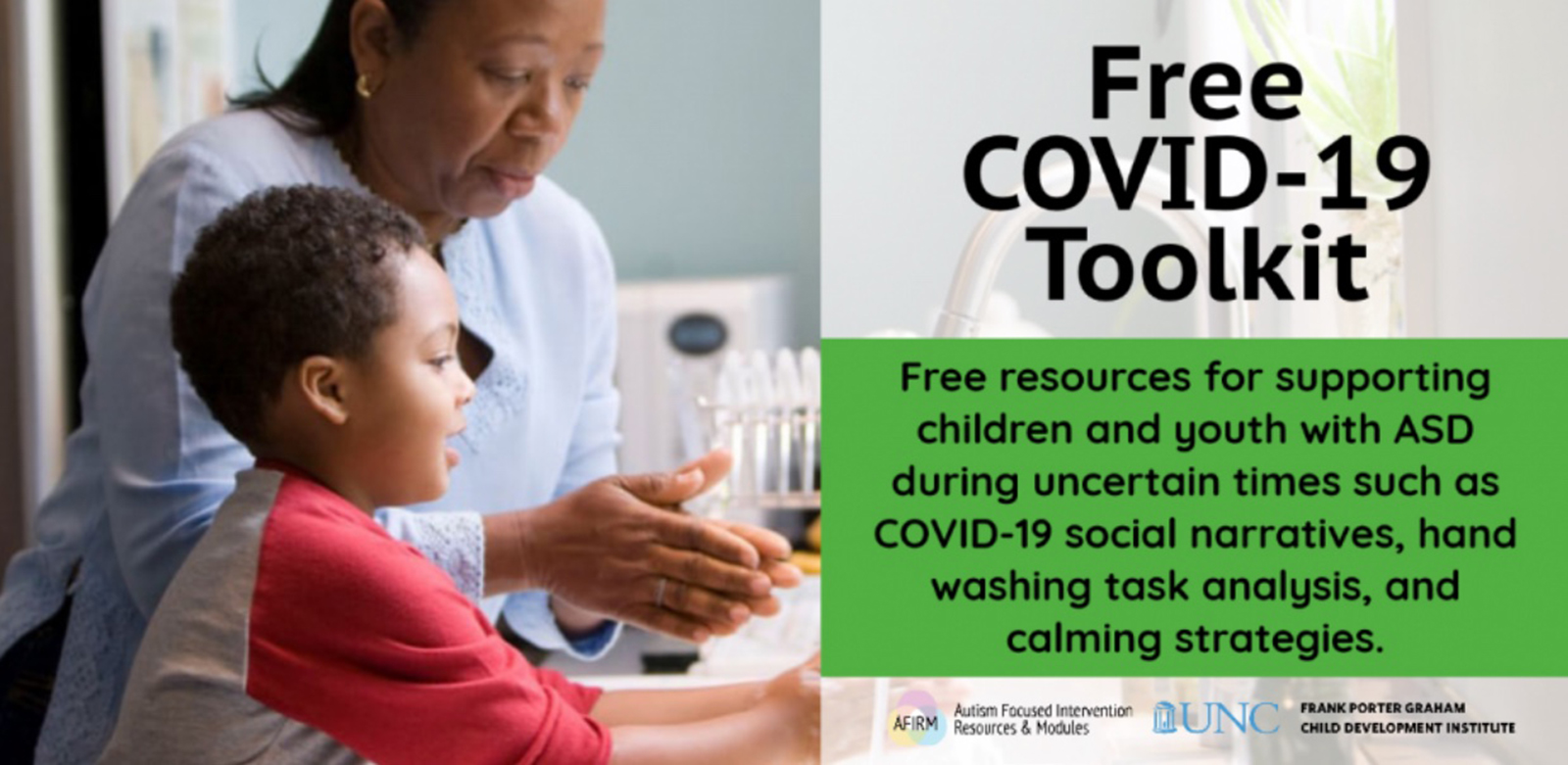A new online toolkit from an interdisciplinary team at the University of North Carolina at Chapel Hill will help families and caregivers supporting individuals with autism during the COVID-19 epidemic.
The toolkit — “Supporting Individuals with Autism through Uncertain Times” — provides user-friendly, evidence-based resources for people supporting individuals with Autism Spectrum Disorder (ASD). The toolkit was developed by experts from the UNC Frank Porter Graham Child Development Institute, the UNC School of Education, and the UNC School of Medicine’s Department of Allied Health Sciences.
Kara Hume, PhD, associate professor in the UNC School of Education and faculty fellow at FPG, assembled the team and led development of the toolkit.
“Our team wants these families and their children with autism to know that there are resources and supports here for them,” says Hume. “These individuals and their caregivers are especially vulnerable to the current stressors, and this guide provides a toolkit of strategies that can provide some relief in these uncertain times.”
Team made up of experts
The team that developed the toolkit included teachers, parents, researchers, graduate students, and postdoctoral fellows from various fields who are experts, working together to build a comprehensive guide for those who may feel unequipped to manage the changes brought on by the epidemic, Hume says. Many of the resources are fully customizable to meet the individual needs of children with ASD and their family members.
The toolkit offers evidence-based, user-friendly strategies, ready-made online resources, printable guides, and links to additional information that can help people navigate this time when many individuals with ASD may find themselves removed from the reliable routines, classroom settings and interventions they count on, Hume says.
“Individuals with autism often struggle with changes in routine and anxiety, and they sometimes have a hard time communicating about their experiences, which can add stress,” says author Mary White, PhD, an FPG educational consultant who is a former teacher and a mother of two faced with similar challenges.
“We wanted to create something for parents and other care providers who are now suddenly responsible for teaching their child or client with autism at home all day,” she says.
A range of resources
The ready-made resources include:
“We hope families can choose from this toolkit of ideas and find something that makes life a little bit easier,” says author Susan Szendrey, a doctoral student in occupational science at UNC-Chapel Hill who regularly works in homes where families have children with autism. “We designed this new guide and the related resources to offer some promise to caregivers that the weeks ahead will be more manageable. We all need that hope right now,” she says.
More information
“Supporting Individuals with Autism through Uncertain Times”
AFIRM’s website
UNC’s COVID-19 information page
Contact: Kara Hume, Associate Professor, UNC School of Education and Faculty Fellow, Frank Porter Graham Child Development Institute, 919-360-2815
